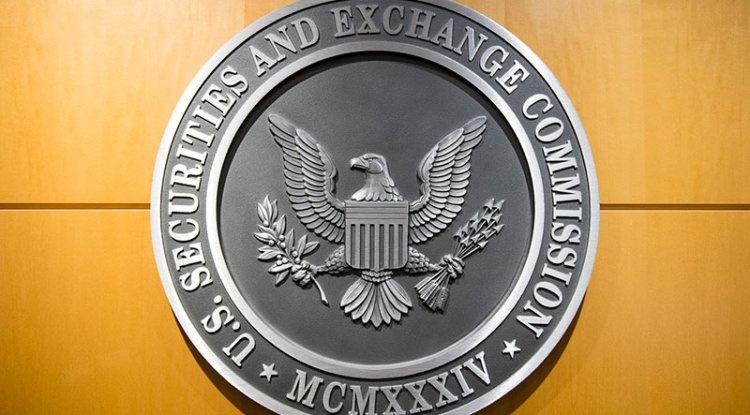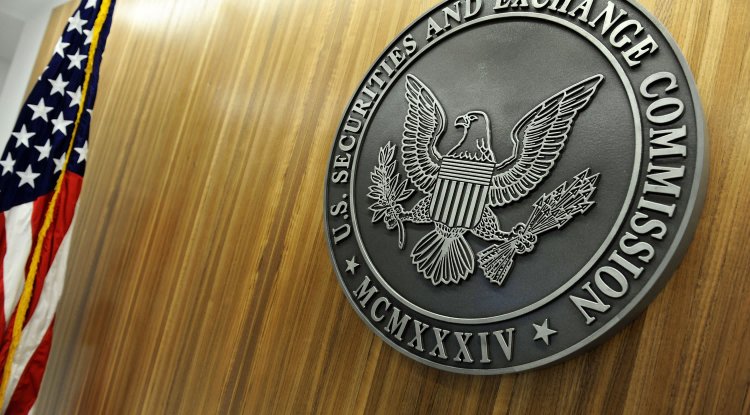Ex-Citadel Engineer Reveals Rigged Trading Game of Citadel Securities
Revealing the Dark Side of Citadel Securities' High-Frequency Trading Game: Insights from an Ex-Employee

A former engineer at Citadel Securities, one of the world's leading financial institutions, has come forward to reveal a manipulative trading game that insiders are playing. This game could be leaving many retail investors out in the cold, and the engineer's insights have provided a peek into the opaque world of high-frequency trading.

The insider has made startling allegations that the game is rigged by insiders, who are wielding their influence to manipulate the markets to their advantage. Citadel Securities is renowned for being one of the most significant players in high-frequency trading, where firms leverage complex algorithms and supercomputers to execute trades at lightning-fast speeds. This confers an advantage that retail investors cannot match on the same level.
The revelation of this rigged game is causing a significant stir in financial circles, as many retail investors are now questioning the fairness and transparency of the markets. The high-frequency trading game is complex and mysterious, but the former engineer's account is shedding much-needed light on the dark corners of this world.
The recent divulgence of a former engineer at Citadel Securities has exposed several malpractices carried out by the company and other high-frequency trading firms that grant them an unfair upper hand in the market. One such practice is the implementation of order types that are unavailable to ordinary retail investors, enabling them to execute trades at speeds unattainable by regular investors, thereby conferring an edge in the market.
Moreover, the post alleges that these high-frequency trading firms, including Citadel Securities, indulge in "latency arbitrage," exploiting disparities in the time consumed for market data to travel across various exchanges. This practice furnishes them with an advantage over other market participants who are bereft of access to such sophisticated technology.
Furthermore, the post also illuminates how the firm wields its market power to manipulate the market to its favor, creating artificial liquidity in a specific security, thus facilitating easier execution of trades at the desired price. This strategy imparts an unfair advantage to them over other market participants who cannot conduct market manipulation in the same vein.
Collectively, the informant's revelation has brought to the forefront the abstruse realm of high-frequency trading and how companies like Citadel Securities employ their market dominance to game the system in their favor. Although these practices may not be deemed illegal, they certainly cast doubts on the equity of the market and whether retail investors are being left out in the cold.
The world of high-frequency trading is opaque and complex, with advanced technology and vast resources giving certain players an unfair advantage over others. Citadel Securities and other high-frequency trading firms are at the forefront of this game, using their technological prowess to execute trades at lightning-fast speeds, exploit differences in market data, and employ advanced order types that are not available to retail investors.
This advantage puts retail investors at a significant disadvantage, as they simply cannot compete on the same level as these high-frequency traders. One of the key issues highlighted by the ex-Citadel engineer is the use of these order types, which allow high-frequency traders to execute trades at speeds that are simply not possible for regular investors. As a result, retail investors are left behind in this fast-paced world of high-frequency trading, with little hope of catching up.
Another issue brought to light by the engineer is the use of latency arbitrage. This practice involves high-frequency trading firms exploiting differences in the time it takes for market data to travel between different exchanges, giving them an edge over other market participants who do not have access to the same technology. This practice puts retail investors at a significant disadvantage and raises questions about the fairness of the market.
Citadel Securities and other high-frequency trading firms have a considerable amount of market power, which they can use to influence the market to their advantage. For example, they can create artificial liquidity in a particular security, making it easier for them to execute trades at the price they want. This practice gives them an unfair advantage over other market participants who do not have the same ability to manipulate the market.
The insider's post sheds light on the inequalities present in the world of high-frequency trading. While these practices may not be illegal, they raise significant concerns about the fairness of the market and whether retail investors are being left behind. It is essential to continue the discussion and explore ways to level the playing field so that all market participants have an equal opportunity to succeed.
Citadel Securities and other high-frequency trading firms can exercise their market power to rig the trading game to their benefit. Their manipulative practices allow them to create fake liquidity in a particular security, making it easier for them to execute trades at their desired price, which is not possible for other market participants. This asymmetrical advantage tips the scales in favor of these powerful institutions, providing them with an unfair advantage and leaving the rest of the investors feeling victimized.
Nick McConlogue, a former employee, has lifted the veil on the opaque world of high-frequency trading and exposed how firms like Citadel Securities are exploiting their market dominance to engage in manipulative trading practices. The allegations have raised serious concerns among investors, regulators, and the general public, who are questioning the fairness and integrity of the financial markets.
The courage shown by whistleblowers like McConlogue is commendable, as they play a vital role in exposing wrongdoings and holding powerful institutions accountable for their actions. It underscores the importance of transparency and accountability in the financial industry, which must be safeguarded at all times.
In response to the allegations, Citadel Securities has denied any wrongdoing and maintained that they have robust risk management processes in place to ensure the integrity of its trading activities. However, this is not the first time that the company has been accused of engaging in manipulative trading practices. The Securities and Exchange Commission (SEC) fined Citadel Securities $22.6 million in 2017 for misleading clients about the firm's pricing practices.
The revelations made by McConlogue have sparked a much-needed debate about the fairness and integrity of the financial markets, particularly in the context of high-frequency trading. The regulators must take prompt and decisive action to investigate these allegations and take the necessary measures to ensure that the markets remain fair and transparent for all investors.
The regulators must ensure that the powerful institutions do not rig the trading game to their advantage. The whistleblowers like McConlogue serve as a beacon of hope in the murky world of high-frequency trading, and their courage must be celebrated and protected.
Related Articles:
- Citadel Securities: The Shadiest Hedge Fund Since Bernie Madoff?
- Is Citadel our generation’s Enron?
- How wall street creates Counterfeit shares for AMC and GameStop
- Citadel securities violations and fines
- How Market Makers are naked short selling stocks known as Cellar boxing
- The Dangers of Short Selling: Understanding High Borrow Rates in Stocks
What's Your Reaction?







-
 Anonhttps://github.com/XRPLF/XRPL-Standards/discussions/78 This is how they do it, probably.3 years ago Reply
Anonhttps://github.com/XRPLF/XRPL-Standards/discussions/78 This is how they do it, probably.3 years ago Reply -
 GuptaCongress need to step in and make right the abuse of a system that was meant to be fair and transparent. SEC's ability is known over the past decade's history. Nothing positive can be stated.3 years ago Reply
GuptaCongress need to step in and make right the abuse of a system that was meant to be fair and transparent. SEC's ability is known over the past decade's history. Nothing positive can be stated.3 years ago Reply -
 ReaderAwesome article!3 years ago Reply
ReaderAwesome article!3 years ago Reply -
 Joe NagleI'd say that investors should send stories like these to the SEC, but what would the SEC do? The SEC doesn't exactly have a track record of keeping markets fair and transparent. Gary Gensler, Chairman of the SEC, "I think the American public 'gets it.' That the system is not fully working for them." https://www.youtube.com/watch?v=0C0Sj6Us19I&ab_channel=TheProblemWithJonStewart3 years ago Reply
Joe NagleI'd say that investors should send stories like these to the SEC, but what would the SEC do? The SEC doesn't exactly have a track record of keeping markets fair and transparent. Gary Gensler, Chairman of the SEC, "I think the American public 'gets it.' That the system is not fully working for them." https://www.youtube.com/watch?v=0C0Sj6Us19I&ab_channel=TheProblemWithJonStewart3 years ago Reply -
 Luke A TimI'd say that investors should send stories like these to the SEC, but what would the SEC do? The SEC doesn't exactly have a track record of keeping markets fair and transparent. Gary Gensler, Chairman of the SEC, "I think the American public 'gets it.' That the system is not fully working for them." https://www.youtube.com/watch?v=0C0Sj6Us19I&ab_channel=TheProblemWithJonStewart3 years ago Reply
Luke A TimI'd say that investors should send stories like these to the SEC, but what would the SEC do? The SEC doesn't exactly have a track record of keeping markets fair and transparent. Gary Gensler, Chairman of the SEC, "I think the American public 'gets it.' That the system is not fully working for them." https://www.youtube.com/watch?v=0C0Sj6Us19I&ab_channel=TheProblemWithJonStewart3 years ago Reply














